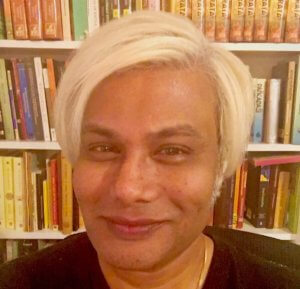
Annual Giving Campaign - 2024-2025 is under way. Donate today by Clicking Here, and help us reach our goal.
So far $785,767 has been raised out of a target of $ 3 Million. Click Here to donate today and help us reach our goal.

$1,500.00

This course is part of the following programs:
All four Mahabharata courses are housed in the DHS program, but MA students may register for them with the instructor’s permission.

As a result of taking this course, students will be able to:

We will read the entire corpus of the Brahmasūtras with an abridged translation of Śāṅkarabhāṣyam by Swami Vireswarananda. The method of exegesis (uttara-mīmāṃsā), interpretive principles (such as harmonization or samanvaya), and proper use of logic (śrutimatas tarka) will be discussed. In addition to the abridged text, some key sections such as the first four Brahmasūtras will require us to read the entire commentary translated by Swami Gambhirananda.
In addition to these translations, the course will also briefly look at Sanskrit phrases and some grammatical points. These will be explained, though no prior knowledge of Sanskrit is required. We will supplement our study of Śāṅkarabhāṣyam with Rāmānuja’s Vedārtha-Saṅgraha. Close reading of the text, class discussion, lectures, and guest lectures (when possible) constitute the method of instruction.
Sūtras are precise and terse propositions, traditionally defined as follows: “The pandits who are learned in sūtra literature say that a sūtra is a saying which consists of fewer words, free of ambiguity, which gives the essence of the argument of a topic, but at the same time deals with all aspects of the question and which is free from repetition and fault.”
Other titles for this work include Vedānta-mīmāṃsā, Bhikṣu-sūtra (aphorisms of mendicants), and Uttara-mīmāṃsā-sūtra (interpretation of the philosophical portions of the Vedas). The Brahmasūtras contain four adhyāyas or chapters.
The Brahmasūtras have inspired important commentaries, sub-commentaries, and glosses over a period of at least 1500 years. The most important commentary on the Brahmasūtras is the Śāṅkarabhāṣyam written by the greatest of Indian philosophers, Śaṅkarācārya. All of the great teachers (ācāryas) wrote commentaries on the Brahmasūtras.
Ācārya Śaṅkara wrote the Advaita (monistic) commentary called Śārīraka-bhāṣya or Brahma-mīmāṃsā, which we call Śāṅkarabhāṣyam. Ācārya Rāmānuja wrote a Viśiṣṭādvaita (qualified monistic) commentary called Śrī Bhāṣyam. Ācārya Madhva wrote a Dvaita (dualistic) commentary called Pūrṇa-prajñā-darśanam. This class is based on the Śāṅkarabhāṣyam, which forms the basis of all the other commentaries, whether the latter commentators elaborate on, or agree or disagree with, it.
$1,500.00

Sign-up for HUA communications
Main Campus:
Administrative Office:
Sign-up for our free webinars
"*" indicates required fields
On the program page, there are multiple payment plan options to choose from.


